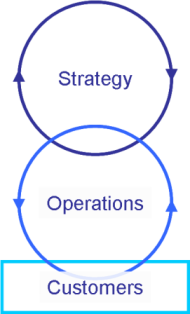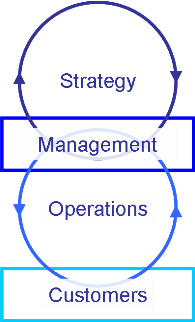The news is full of ‘sub-prime crises’ and ‘credit crunches’. Whether we are on the edge of a real recession, or just talking ourselves into one, I am not sure – but either way it is sensible to prepare for rougher times ahead.

At these times good managers know how to develop a sense of urgency in the organisation to make sure it is ‘battened down’ when the storm hits. They set deadlines, chase progress and generally tighten up on both effectiveness and efficiency. By making sure that everyone is engaged in ‘doing something’ they manage to keep morale high and opportunities to wallow in self-pity to a minimum. They develop contingency plans, including drastic measures such as redundancies should they be necessary.
The very best managers maintained this sense of urgency when the waters were calm and progress was good. They truly were making hay while the sun shone. The focus of the urgency in such times should be more strategic:
- building high performing teams and cultures – capable of creating more value at lower cost than the competition – through recruitment, development and retention
- scanning the environment to see where the next storms are brewing and plotting the best course available
- building customer loyalty and commitment so that the customer base is retained when things get rough
The average and the great manager are also separated, in my book, at least by the way that they handle the whole concept of influence and control. The average manager looks on tough times as ‘just one of those things’ that ‘we will get through somehow’. They become almost passive, certainly defensive, victims of the economic downturn, just trying to keep the wheels in motion until ‘things pick up’.The very best managers have a story to tell and a plan to put in place that will give the organisation every chance of coming through unscathed. They actively manage the situation and ensure that everyone is engaged in looking for ways to drive up value and reduce costs. Managers who have been using 121s effectively for a while will find they really come into their own as they can help to dispel rumours and keep everyone focused on the required objectives.



